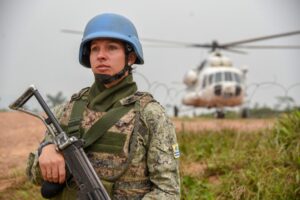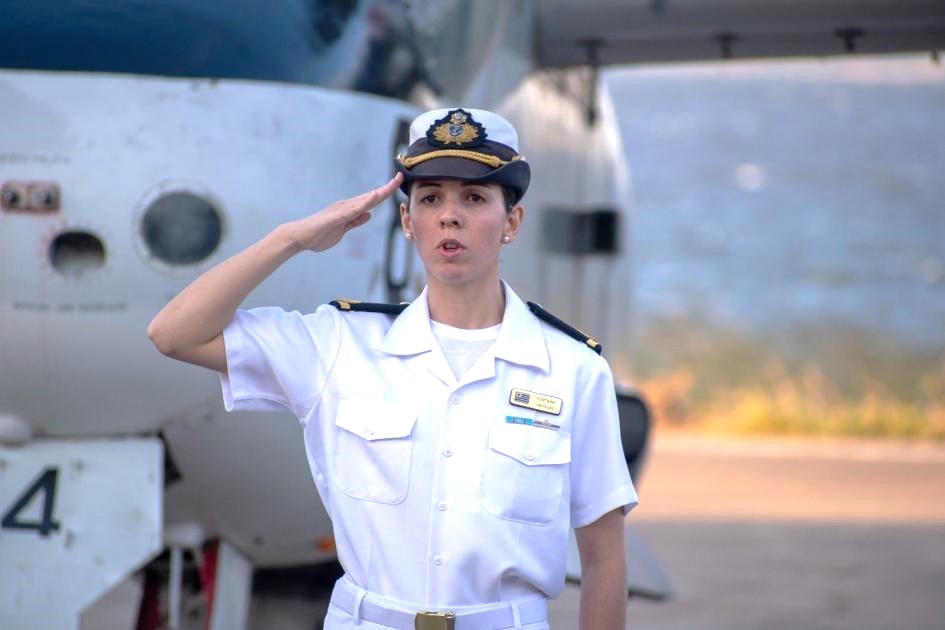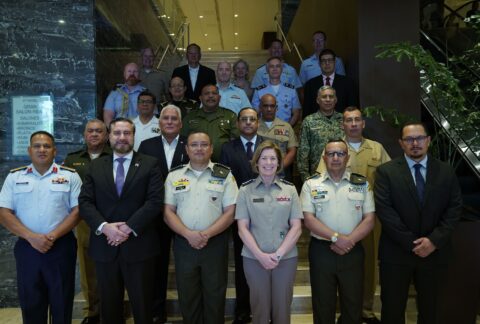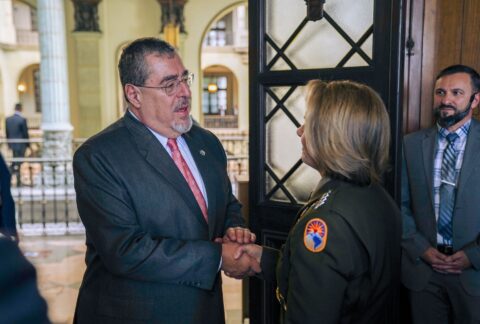The percentage of women in the Uruguayan Armed Forces rose by 25 percent in recent years, with military women assuming more important responsibilities in the Army, Navy, and Air Force, the Uruguayan Ministry of Defense indicated.
In early February, the Uruguayan Navy reached a historic milestone as Ensign Nati Fontaine became the first female aviator in the history of the naval institution, flying a Beechcraft T-34C-1 Turbo Mentor training aircraft.
“This represents a great challenge in the military career, since we women now become part of a flight crew,” Ensign Fontaine told Diálogo on April 16. “With this, we acquire greater responsibilities such as decision-making and be in charge of a crew and of the mission itself, such as search and rescue at sea.”
To increase the integration of military women, the Executive Branch will soon submit to Parliament a request to promote the first two women in the Armed Forces to the rank of colonel, Uruguay’s Defense Minister Javier García said. The promotion proposals will be in a first for two Air Force officers.
“It is the first time that in the Uruguayan Armed Forces there will be women in the senior officer hierarchy; it means that in a few years there will be women generals or admirals, or brigadier generals, which is a very significant and good change,” García told the press.
Being able to contribute to the history of naval aviation brought joy to Ensign Fontaine. “The hope is that this will encourage other women to try it too, and I am not only referring to naval aviation, but to all those areas in which women are not yet a part of in the history of the Armed Forces,” she said.

According to the Uruguayan Ministry of Defense, nearly 20 percent of the Armed Forces are women. Some of them are deployed in peacekeeping operations under the United Nations (U.N.), where they contribute to the prevention of sexual abuse against children and work in orphanages, among others.
Uruguayan military personnel make up contingents in the United Nations Organization Stabilization Mission in the Democratic Republic of the Congo (MONUSCO) and in the Multinational Force and Observers, which supervises the implementation of the security provisions of the Egyptian-Israeli Treaty of Peace.
“The presence of women is very important. To date, there are women deployed as military observers in the Congo,” Uruguayan Navy Captain Alejandro Chucarro, head of Public Relations, told Diálogo. “They have the same possibility as their male counterparts to take part in these missions.”
Uruguay currently deploys 1,057 military personnel in international peacekeeping operations, 6.1 percent of whom are women. The goal is to reach 11 percent by 2024, the Uruguayan Army indicated.
“The activities carried out by women are varied, as there are no restrictions on the tasks they can perform,” Capt. Chucarro said. “There are women embarked who have been commanders and second-in-command or working as mechanics in the engine room, in electronics, as marines, aircrew, and maritime police, among many others.”
In 1992, the first generation of women from the School of Specialties began to join the Navy as junior personnel. In 2000, the first woman entered the Naval School, becoming four years later the first female naval officer.
“If this career has shown me anything, it is that we set the challenges for ourselves,” Ensign Fontaine said. “In the Armed Forces one does not find gender limitations […]. Opportunities in the Armed Forces are given indistinctly to both men and women. If you are determined to do something no one will stop you, but it is up to you to show what you are capable of and that you can work alongside men without any distinction.”









